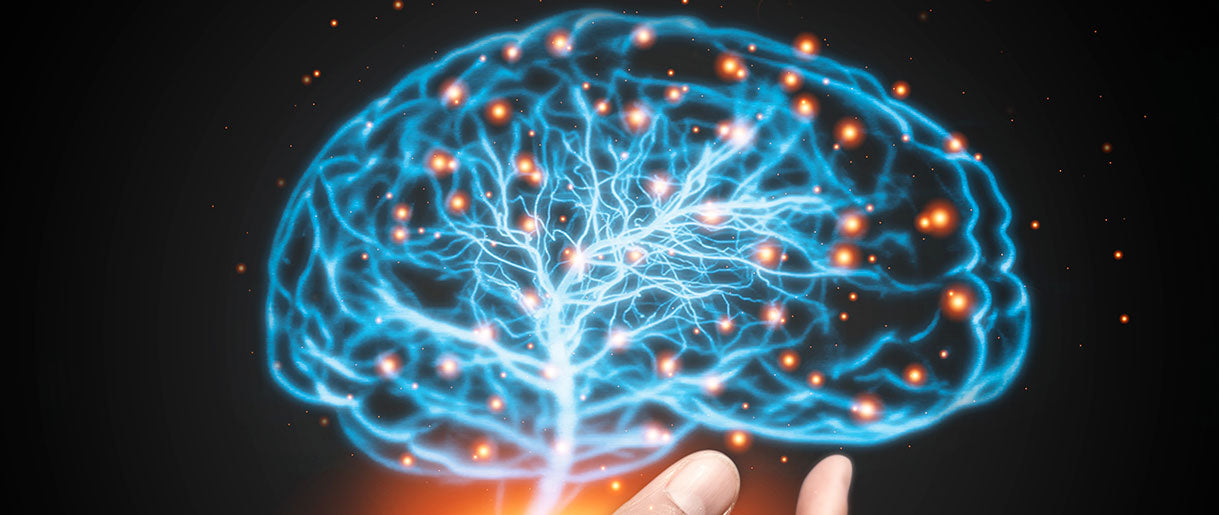Vitamin B, particularly B6, B12, and B9 (Folic Acid), plays a pivotal role in brain health by aiding in the production of neurotransmitters. These neurotransmitters are crucial for communication between brain cells, impacting memory, concentration, and overall cognitive function.
Vitamin B12 is essential for maintaining the health of nerve cells and helps form red blood cells,which are responsible for carrying oxygen to the brain. More oxygen means better brain function and, consequently, improved memory.
On the other hand, Vitamin B6 is involved in synthesizing neurotransmitters like serotonin and dopamine,which affect mood, concentration, and brain processing speed. Similarly, Folic Acid (Vitamin B9) contributes to brain function by helping to reduce levels of homocysteine in the blood,an amino acid linked to cognitive decline when present in high levels.
Studies have shown that a deficiency in these B vitamins can lead to memory impairment. Therefore, ensuring adequate intake of Vitamin B can support better memory function and protect against cognitive decline.
In this article, we will delve into the science behind how Vitamin B aids memory, the importance of each B vitamin in cognitive health, and how you can incorporate them into your diet for a sharper mind.
1. Vitamin B12

Have you ever considered how vital Vitamin B12 is for your brain's health? Often overlooked, this essential nutrient is a powerhouse for boosting cognitive function and keeping memory-related concerns at bay, especially as we age.
For those navigating the complexities of cognitive aging or seeking ways to maintain sharpness, Vitamin B12 emerges as a supplement and a crucial ally in the quest for a healthy, vibrant mind.
- Critical for Cognitive Health: Vitamin B12 is pivotal in maintaining nerve health and synthesizing neurotransmitters (1), both essential for optimal cognitive functions.
- Guarding Against Cognitive Decline: Deficiencies in Vitamin B12 are closely linked to various cognitive impairments, including mild cognitive impairment and a heightened risk of Alzheimer's disease (2), particularly in elderly adults.
- Enhancing Memory Performance: Regular intake of Vitamin B12 has shown significant benefits in slowing cognitive decline and improving memory performance (3), making it vital for cognitive health, especially in elderly patients undergoing cognitive tests.
Vitamin B12 is more than just another nutrient; it's a key player in the complex world of cognitive domains.
Whether you're an elderly adult concerned about age-related cognitive decline or anyone keen on maintaining a sharp, focused mind, this vitamin deserves your attention. Making it part of your morning routine for mental health (and brain health) can help you enjoy a productive day.
2. Vitamin B6

Ever wondered what fuels your brain's ability to think, remember, and process information rapidly? The answer might just lie in Vitamin B6, a key player in the world of cognitive health.
This essential nutrient is like a silent hero, working behind the scenes to ensure your brain functions at its best. Whether tackling a challenging puzzle, learning a new skill, or simply trying to stay focused, Vitamin B6 enhances your cognitive abilities in ways you might not even realize.
- Boosting Cognitive Performance: Vitamin B6 is instrumental in improving overall cognitive performance, aiding in everything from memory to decision-making and problem-solving.
- Enhancing Mood and Concentration: It significantly impacts mood (4) and concentration, playing a role in synthesizing neurotransmitters like serotonin and dopamine, which are crucial for cognitive functions.
- Slowing Cognitive Decline: Studies, including randomized controlled trials, suggest that adequate levels of Vitamin B6 can help in slowing cognitive decline, particularly in elderly adults, potentially reducing the risk factors associated with cognitive disorders like Alzheimer's disease.
Vitamin B6, often overshadowed by its more famous cousin Vitamin B12, is equally important in maintaining and improving cognitive function.
This nutrient's ability to affect cognitive function spans various cognitive domains, from memory performance to brain processing speed.
It's a key factor in treating cognitive impairment and can be particularly beneficial in managing age-related cognitive decline and brain atrophy.
3. Folic Acid (Vitamin B9)

When it comes to the unsung heroes of cognitive health, Folic Acid, or Vitamin B9, definitely deserves a spotlight.
Often associated with general well-being, the influence of folic acid on brain function is a fascinating area packed with insights into how we can maintain and even enhance our cognitive abilities.
It's not just about keeping your body healthy; it's about nurturing your brain's capacity to remember, process, and function efficiently.
- Homocysteine Lowering Champion: Folic Acid, an amino acid whose deficiency is linked to cognitive deficits, plays a crucial role in lowering homocysteine levels (5). High homocysteine is a risk factor for cognitive decline (6) and impaired cognitive function. Oral folic acid supplementation can be an effective homocysteine-lowering vitamin treatment (7).
- Enhancing Specific Cognitive Domains: Systematic reviews and healthcare research suggest that Folic Acid supplementation can improve cognitive function in different domains, particularly memory and processing speed (8).
- Preventing Cognitive Decline: Regular intake of Folic Acid has been associated with a slower rate of cognitive decline, according to a randomized controlled trial and randomized placebo-controlled study. Integrating it into your diet, you can proactively work to prevent cognitive deficits and maintain mental sharpness, lowering the rate of normal cognitive aging.
Folic acid isn't just a vitamin; it's a critical factor in cognitive health. It works quietly but effectively, ensuring your brain functions optimally, especially as you age.
Incorporating Vitamin B into Your Diet

Navigating the world of vitamins can be overwhelming, can't it? But when boosting your brain health, incorporating Vitamin B into your diet is simpler than you might think.
Whether you're a culinary enthusiast or always on the go, getting that essential dose of Vitamin B12, B6, and Folic Acid can seamlessly integrate into your daily routine. Let's break down how you can up your Vitamin B game with practical, easy-to-follow tips.
Who wouldn't love to improve their brain function by leveraging the natural foods they consume? Well, here is where to get your daily dose of Vitamins B12, B6, and B9:
- Vitamin B12: Found predominantly in animal products, B12 can be enjoyed in lean meats, fish, poultry, eggs, and dairy products. For vegetarians and vegans, fortified foods or supplements might be necessary.
- Vitamin B6: This is abundant in various foods, including chicken, fish, potatoes, chickpeas, bananas, and fortified cereals.
- Folic Acid: Load up on leafy greens, legumes, seeds, and fortified grains to get a good dose of Folic Acid.
If spending time in the kitchen does not fit into your morning routine checklist where you are rushing to avoid getting late to work, consider supplementing. However, when supplementing, be sure to do it wisely:
- B Vitamin Supplementation: B vitamin supplements can be a practical solution for some, especially older adults or those with dietary restrictions. Vitamin B supplementation ensures you get enough of these crucial nutrients, regardless of your dietary preferences.
- Consult with a Healthcare Provider: Before starting any vitamin supplements, it's wise to talk with a healthcare professional, especially if you're already taking other medications or have health concerns.
Incorporating Vitamin B into your diet doesn't have to be a chore. It's about making mindful choices, whether opting for a breakfast rich in B vitamins or considering dietary supplements to fill any gaps. Remember, a little tweak in your diet can significantly improve your cognitive health and overall well-being.
FAQs About Vitamin B For Memory
Which Vitamin B Is Needed By The Brain?
The brain requires various Vitamin B types for optimal health and function. Key among these are:
- Vitamin B12: Essential for nerve health and the formation of red blood cells, which carry oxygen to the brain. It's vital for maintaining healthy brain function and preventing cognitive decline.
- Vitamin B6: Plays a significant role in neurotransmitter synthesis, affecting mood, memory, and brain processing speed.
- Folic Acid (Vitamin B9): Important for reducing homocysteine levels in the blood, high levels of which are associated with cognitive impairment. Folic Acid is also crucial for DNA synthesis and repair in brain cells.
These B vitamins support various aspects of brain health, from cognitive function to maintaining healthy brain cells.
How Much B12 Should I Take Daily For Memory?
The recommended daily intake of Vitamin B12 for general health varies by age and other factors, but for memory enhancement specifically, there isn't a universally agreed-upon dosage. Adults should aim for about 2.4 micrograms of Vitamin B12 per day.
However, it's essential to consult a healthcare provider before starting any new supplement regimen, especially for concerns like memory enhancement. They can provide guidance based on individual health needs and conditions.
When Is The Best Time To Take Vitamin B For Memory?
The best time to take Vitamin B for memory, particularly B-complex vitamins, is in the morning.
Taking them earlier in the day can help enhance their positive effects on energy levels, brain function, and mood, while also reducing the likelihood of sleep disturbances if taken later in the day.
However, individual responses may vary, so adjusting timing based on personal tolerance and lifestyle is advisable.
Key Takeaways
Navigating the intricate world of vitamins and their impact on cognitive health can be intriguing and overwhelming. In this journey through the benefits of vitamin B for memory and cognitive function, we've uncovered the significant roles of vitamins B12, B6, and folic acid.
These nutrients are not just mere elements in our diet but are pivotal players in maintaining and enhancing our brain health. From protecting against cognitive decline to boosting our memory and mental agility, the B vitamins are essential allies in our quest for a healthy, vibrant mind.
We'd love to hear from you! Have you experienced the benefits of Vitamin B in your cognitive journey, or do you have tips and insights to share?
Leave a comment below and join the conversation. Your experiences and thoughts could light the path for someone else on their journey to better brain health. Let's keep learning and growing together!
References
- Obsessive Compulsive Disorder as Early Manifestation of B12 Deficiency, (1), https://www.ncbi.nlm.nih.gov/pmc/articles/PMC3271502/
- Plasma Vitamin B-12 Levels and Risk of Alzheimer's Disease: A Case-Control Study, (2), https://www.ncbi.nlm.nih.gov/pmc/articles/PMC8832580/
- Low Vitamin B12 Levels: An Underestimated Cause Of Minimal Cognitive Impairment And Dementia, (3), https://www.ncbi.nlm.nih.gov/pmc/articles/PMC7077099/
- Vitamin B6: A new approach to lowering anxiety, and depression?, (4), https://www.ncbi.nlm.nih.gov/pmc/articles/PMC9577631/
- Randomized Trial of Folic Acid Supplementation and Serum Homocysteine Levels, (5), https://jamanetwork.com/journals/jamainternalmedicine/fullarticle/647576
- Homocysteine and Dementia: An International Consensus Statement, (6), https://www.ncbi.nlm.nih.gov/pmc/articles/PMC5836397/
- Folic Acid Supplementation in Patients with Elevated Homocysteine Levels, (7), https://www.ncbi.nlm.nih.gov/pmc/articles/PMC7497502/
- Positive effects of folic acid supplementation on cognitive aging are dependent on ω-3 fatty acid status: a post hoc analysis of the FACIT trial, (8), https://www.sciencedirect.com/science/article/pii/S0002916522006487










Let Us Know Your Comments